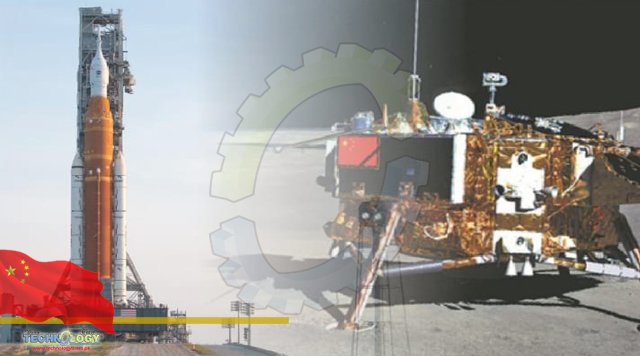The China roadmaps new lunar exploration missions , The inaugural unmanned mission to kickstart the US’ ambitious plan for human exploration to the moon and Mars – got stuck on the launch pad due to repeated fuel leaks, Chinese scientists are making new breakthroughs in the country’s Moon exploration missions and achieving more major findings on the existence of water on the Earth’s natural satellite.

Samples retrieved by China’s Chang’e-5 mission have revealed high water content in lunar minerals, which would offer the world direct evidence for the existence of water on the Moon, verifying previous monitoring outcomes via only remote sensing technology but coming short of analyzing actual lunar samples. China roadmaps new lunar , Chinese scientists studying the samples said that their estimate of a minimum of 170 ppm water content in lunar soils in the Chang’e-5 landing region is consistent with what has been reported by the Moon Minerology Mapper and the lander of the Chang’e-5, according to the new published paper concerning the finding that was published in the international scientific journal Nature Communications on Saturday. Chang’e-5 marked the third phase of the Chinese lunar exploration project formulated in the early 2000s. The mission successfully returned some 1.7 kilograms of lunar minerals from the moon’s Northeastern Oceanus Procellarum basin. On Friday, Chinese scientists for the first time discovered a new mineral on the Moon and named it Changesite-(Y,) making China the third country to make a discovery of a new mineral on the moon. Closely following that, the China National Space Administration (CNSA) announced on Saturday that the new Phase-4 lunar probe mission, consisting of the Chang’e-6, -7, and -8 to be carried out successively over 10 years, has obtained state approval and is proceeding smoothly.
The Chang’e-6 probe, a backup for Chang’e-5 with a sample retrieval capability, will travel to the far side of the moon, Liu Jizhong, Director of China Lunar Exploration and Space Engineering Center, said in an interview on Saturday. He added that the module has been basically completed. Liu noted that the Chang’e-7 probe is currently being developed. The mission will subsequently explore the Moon’s South Pole region, and establish a basic structure for the International Lunar Research Station. However, the Moon has seemingly become another field for the US to embody its Cold War mentality, according to Chinese space watchers. China roadmaps new lunar , US space agency NASA recently lashed out at China, saying it was not being ”open and transparent” about its lunar mission, after reports claimed that China’s potential landing sites on the Moon overlap with the US in the lunar South Pole region. Bill Nelson, the NASA Chief, has accused China of stealing space technology, and said China has been criticized over space debris, Bloomberg reported on Saturday. And the Washington Street Journal claimed that “today we are in a new space race, this time with China. And our economic and national security are both at serious risk.” The report also cited a recent report from the State of the Space Industrial Base conference, held in June and sponsored by the US Space Force, the Defense Innovation Unit and the Air Force Research Lab, saying that for the first time since the conferences began in 2019, the 350 participants from industry and government were pessimistic about the US space sector. They predicted that China will overtake the US as the dominant space power by 2032.
The obvious anxiety of the US space sector is growing with its Artemis frustrations, and the cause of their anxiety is a mixture of external pressure from China’s steady advancement and their internal narrow-mindedness, observers pointed out. Space watcher Song Zhongping told the Global Times on Monday that the US takes pride in its space dominance and believes that no one on Earth can compete with it in this domain, which explains why Washington is always protesting about so-called technology theft. China roadmaps new lunar , However, Song warned that although the US enjoys space technology hegemony, its narrow-mindedness and old-fashioned ideas would eventually make the country fall behind. Another space observer, who asked not to be named, said that the US is used to naming imaginary enemies in a Cold War setting in order to tap into its potential.However, it fears defeat by China this time due to the fact that the domestic chaos in the political and social fields has not only made it difficult to sustain and implement a stable policy, but has also increasingly made it lose appeal for global talents.
Source: This news is originally published by globaltimes